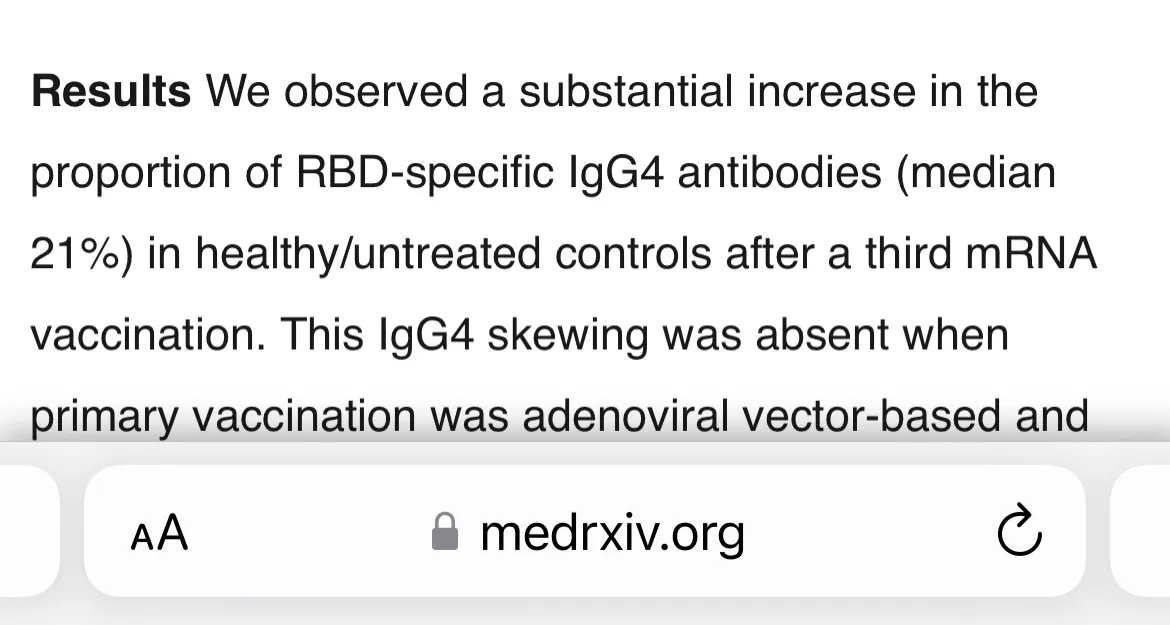by Alex Berenson, Unreported Truths:
 The biggest study yet on post-jab IgG4 “class switching” just came out. You will be shocked – SHOCKED – to hear American researchers had nothing to do with it.
The biggest study yet on post-jab IgG4 “class switching” just came out. You will be shocked – SHOCKED – to hear American researchers had nothing to do with it.
Many people who receive mRNA Covid jabs wind up with profound changes in their immune systems that usually arise only after prolonged exposure to allergens like bee venom, a new study confirms.
TRUTH LIVES on at https://sgtreport.tv/
The changes seem to reduce the immune response to Covid as the body adjusts to the unnaturally high antibody levels mRNA jabs initially produce.
They may account for the paradoxical fact that despite Omicron’s mildness, jab fanatics like Stephen Colbert recently have reported failing to clear Covid infections quickly. The immune system changes are unique to mRNA and not seen in people who get other kinds of Covid vaccines, the study found.
The study also showed a powerful immunosuppressant given for eczema suppresses the changes – further raising questions about the potential relationship between skin and autoimmune disorders and the mRNAs.
Scientists in the Netherlands carried out the study, which included 604 patients and was funded by the Dutch government.
The researchers posted their findings online as a preprint weeks ago, but the paper has received no mainstream media coverage despite its implications. It confirms and expands upon two earlier papers that showed similar immune system changes.
—
(Three shots of mRNA equals IgG4. Nope, nobody saw this coming. Nope, nobody really knows what it means. And nobody in the United States seems too interested in finding out.)

—
In each paper, scientists reported people who had received at least three mRNA shots showed a sharp increase in a type of antibodies called IgG4.
IgG antibodies persist for months in the blood after someone is infected with an “antigen” – a foreign invader like the coronavirus. They are the most common antibodies the immune system produces.
In the case of the coronavirus, IgG antibodies attach to the spike protein that juts out from the surface of the virus. They then either prevent the virus from locking on the body’s cells and reproducing, or recruit other parts of the immune system to attack the virus.
But IgG antibodies come in different subclasses.
IgG4 is generally the rarest, and the last the body makes. The IgG4 subtype does not recruit other parts of the immune system to attack the virus, though can still “neutralize” the virus by keeping the virus from attaching to cells. Usually, the IgG4 class make up less than 5 percent of all IgG antibodies, and often less than 1 percent.
But the scientists found that after a third shot, IgG4 made up about 21 percent of all the IgG antibodies they found in the average healthy adult. The levels varied very widely, though, and in 1 in 4 adults IgG4 was nearly 50 percent of all IgG antibodies.
Read More @ alexberenson.substack.com



